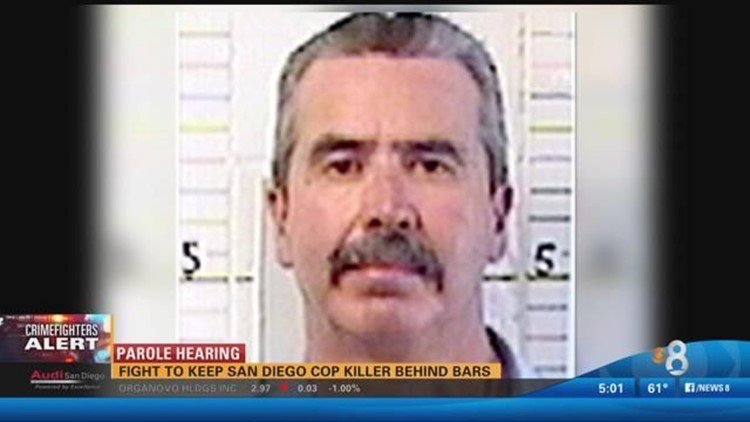SACRAMENTO, Calif. (AP) — For the third time, California Gov. Jerry Brown has rejected parole for a man convicted of gunning down a San Diego police officer in 1978 when he was a 17-year-old gang member.
Brown's decision late Friday rejected the February recommendation of a state parole board, which said Jesus Cecena is fit to be released.
Brown also blocked Cecena's parole in 2014 and 2016, citing nearly identical reasons, primarily his "resistance to explore the motivations "behind the killing."
Brown says he acknowledges Cecena's youth at the time of the crime, and that he has improved himself in prison, but that other factors override those.
The governor says that while Cecena admitted for the first time this year that he had wanted to execute Officer Archie Buggs, he still refuses to give a real accounting of the night in November, 1978 when he shot Buggs four times during a traffic stop.
"Mr. Cecena has yet to offer a plausible explanation for the reasons he killed Officer Buggs," the governor wrote in his decision. Cecena said in his parole hearing that he feared his father, on learning he had gotten a traffic ticket and had been caught with alcohol, would abandon him.
Cecena said that helped drive him to act impulsively and shoot Buggs.
But the governor says the evidence presented at Cecena's trial, including the patter of the shots fired, indicate that he acted with calm, cool calculation.
Cecena was found guilty of first-degree murder and sentenced to life with no parole, but his term was later modified, giving him a chance at parole under a state law that allows youth offenders serving life sentences to petition for release once they have served at least 15 years.
Brown has made a regular practice of blocking recommended parole for the state's most high-profile murderers, including frequent rejections for followers of Charles Manson.
RELATED



